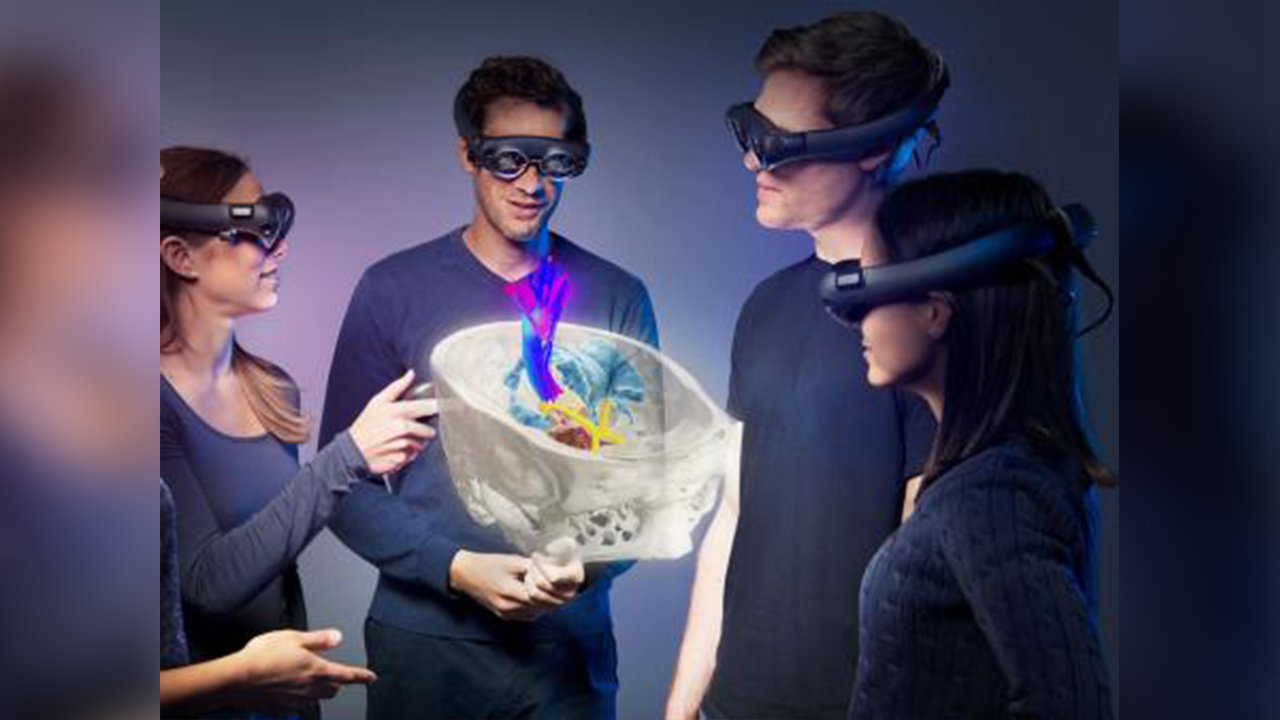Digital medical technology company Brainlab announced on 23.01.2020 that it will present its Mixed Reality Viewer* at the upcoming Arab Health to be held in Dubai from 27 to 30 January 2020. The new technology brings spatial computing into daily clinical practice for surgical plan review, medical student training and patient consultation.
Brainlab Mixed Reality (MR) Viewer uses the head-mounted display Magic Leap One from Brainlab strategic development partner Magic Leap to add a new dimension to patient scans by freeing them from the screen. Up to four users can interact with these photorealistic images in the room, walking around them to gain new perspectives on the patient’s specific anatomy. Brainlab Mixed Reality Viewer is CE labelled and is now available in Europe, with FDA clearance expected to follow later this year.
“Mixed reality offers surgeons a completely new perspective on medical data,” commented Stefan Vilsmeier, President and Chief Executive Officer, Brainlab. “First we had the mouse before touchscreens revolutionized interaction with patient images. Now with mixed reality, users can walk around and dive inside these images created with the latest rendering technology used in gaming applications. This radical perspective change is just the first step in the next medical image visualization revolution.”
Brainlab Mixed Reality Viewer is based on the company’s Elements 3D Viewer software which is already in use in thousands of hospitals around the world. The system provides high-fidelity, gaming-quality graphics that allow medical professionals to experience data as never before. With these case-specific hyper-realistic 3D visualizations, medical students can gain valuable knowledge and patients a better understanding of their specific anatomy and the planned surgical approach.
Image data becomes virtual, patient-specific 3D model
Users can place and interact with patient-specific 3D models in the room by resizing, scrolling through scan layers, and more. Collaboration mode allows multiple specialists to simultaneously view and move around that model, even remotely from anywhere in the hospital network. A virtual pointer facilitates discussion by allowing users to visually indicate anatomical areas critical to the case. Thanks to easy set-up, clinicians can start using the system immediately upon receipt.
James McArthur, General Manager of GenesisCare UK, the first healthcare provider in the UK to use Brainlab Mixed Reality Viewer, commented: “At GenesisCare, we pride ourselves on doing whatever it takes to improve cancer treatment for our patients. Brainlab Mixed Reality Viewer enables our clinicians to show their patients information in a new, more accessible way. Mixed reality will help our clinicians to make tailored treatment decisions and allow our patients to understand their cancer treatment in a way that was not possible before.”
Thanks to an exclusive partnership with Magic Leap, Brainlab is bringing significant advancements in spatial computing to a broad range of medical procedures in the fields of general surgery, spine, trauma, vascular, craniomaxillofacial (CMF) and neurosurgery as well as radiotherapy and radiosurgery. In the future, more indications and applications are planned, including bringing MR into the operating room to be used during surgery.
The open framework operating system, which forms the basis for Brainlab Mixed Reality, allows third parties to develop medical applications to further advance the field of spatial computing.

 Mixed Reality Viewer available for surgical planning, medical training and patient education
Mixed Reality Viewer available for surgical planning, medical training and patient education









.jpeg)

.jpg)


















.jpg)